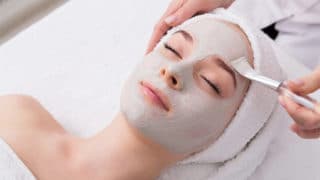Few of us can escape hair loss, bald spots or thinning hair at some point in our lives, be it from ageing, genetics, stress or medical conditions. Happily, these clinics in Singapore offer cutting-edge solutions, from laser treatments to medication and hair loss shampoos, to help bring us back a thick head of hair!
Dr KW Chan Clinic – non-invasive laser for hair growth
Are you looking to address your bald spots, but would rather do so sans needles or pain? We feel you! Dr KW Chan Clinic offers a range of FDA-approved treatments and procedures – and the Revage 670 treatment could be just the solution for you.

Revage 670 is a non-invasive laser therapy treatment. It uses low-level laser therapy (LLLT) technology to efficiently stimulate hair follicles and foster hair growth. By emitting a specific wavelength of light energy that’s absorbed by the hair follicles, the laser works to enhance blood circulation to hair follicles, resulting in hair growth.
The treatment is effective in treating a gamut of hair-loss conditions in both men and women, from androgenetic alopecia (commonly known as male and female pattern baldness) to telogen effluvium (hair loss caused by factors like stress) and alopecia areata (characterised by patchy hair loss).
While some may feel a slight warmth or tingling sensation on the scalp during the treatment, many will be happy to know that it is painless and non-invasive. A few laser treatments ($2,000 for 12 sessions; $200 for one) over several months are recommended for the best results of hair growth, which can be seen after several months. There’s also no downtime required. This means patients can resume their normal activities right away after a treatment.
Dr KW Chan Clinic
#02-19/20 OUE Downtown Gallery Tower 2, 6A Shenton Way
9645 9863 | drkwchanclinic.com
Leonica K Trichology – hair loss shampoos and highly customised solutions
Whether you’re suffering from female- or male-pattern hair loss, scalp disorders, alopecia areata or even post-partum hair loss, Leonica Kei, founder and principal trichologist of Leonica K Trichology, staunchly believes in providing bespoke treatment that targets individual hair needs.
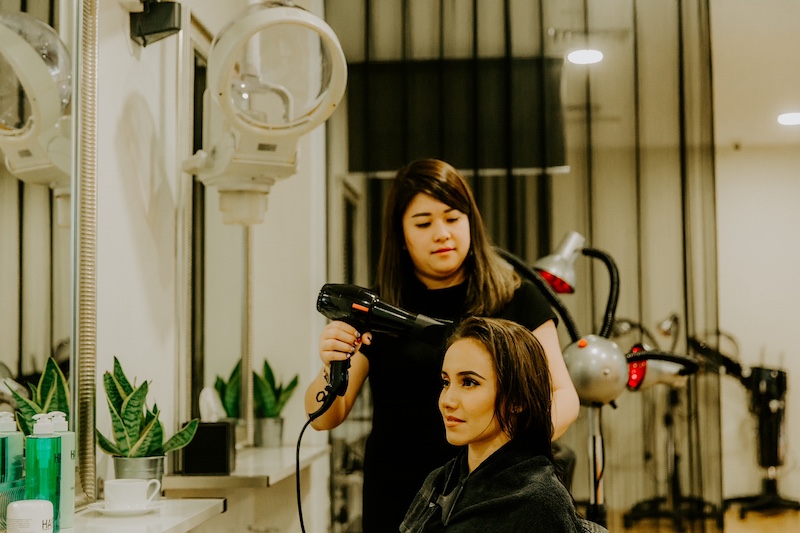
Kei and her team use a blend of advanced treatments and their in-house brand of products to target various causes of hair thinning and hair loss. For example, pattern and post-partum hair loss may call for a combination of treatment cream, tonic and scalp serum to nourish hair roots and support optimum follicle function. This could be followed by steam and infrared light therapies to aid effective penetration and absorption of the formulas. Alopecia areata, on the other hand, may require exposure to ultraviolet light for its positive effects on troubling bald spots. This can be used in tandem with the clinic’s anti-hair-loss Peppermint Shampoo and Energise Tonic.
After weekly 90-minute treatments for three to six months, clients can expect to notice significantly less hair fall and more voluminous, healthier hair. They’ll also see visible improvement in the wellbeing of their scalp. Each treatment costs $450, with 12 sessions costing $3,300. Head over to the beautifully designed Orchard centre to learn more.
Leonica K Trichology
#02-35 Voco Orchard Singapore, 581 Orchard Road
6834 0988 | leonicak.com
Bay Aesthetics Clinic – ideal for those experiencing mild to moderate hair loss
Hair loss can hit at any time, even in perfectly healthy individuals. And it can result from a myriad of reasons, whether it be undergoing a period of hormonal changes or experiencing a sudden spike in stress.
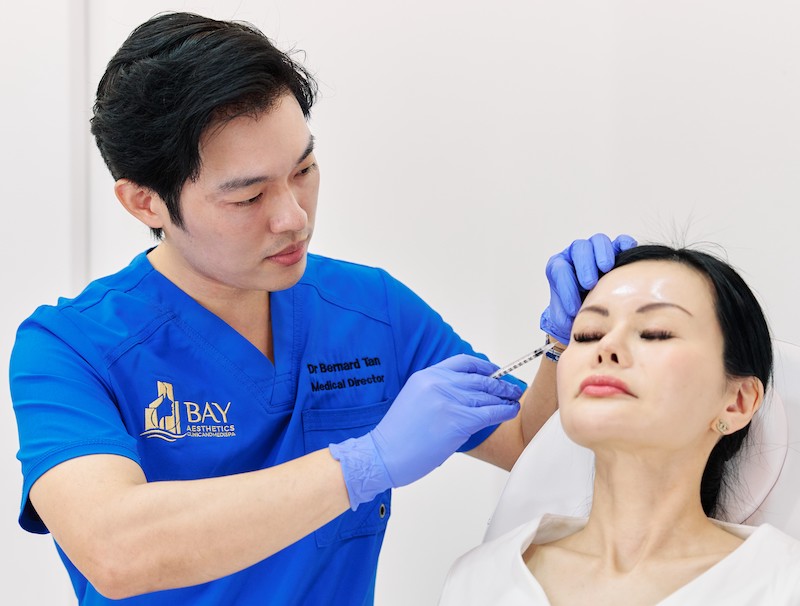
Bay Aesthetics Clinic is a doctor-led clinic that offers a range of medical aesthetics and medispa treatments – including for hair loss – in a stylish environment. It’s here you’ll find the Regenera Activa autologous stem cell hair restoration treatment. This is especially designed to treat male and female patients of all ages who are experiencing mild to moderate hair loss due to ageing, hormones, genetics or stress.
During the treatment, a doctor will harvest small grafts from the hairline containing the patient’s own stem cells and growth factors. Afterwards, these grafts are processed by the Regenera Activa machine into micro-grafts, which are then injected into areas of hair loss or thinning to boost hair growth.
Best of all? The treatment requires minimal follow-up visits. The team at Bay Aesthetics Clinic recommends undergoing the treatment once a year. Each costs $3,000 and takes 30 to 45 minutes, so it’s a fantastic fit for those with hectic schedules. Results can usually be seen within two to three months, and a follow-up consultation is arranged three months after the treatment.
Bay Aesthetics Clinic
#B2-12 Marina Bay Link Mall, Marina Bay Financial Centre
8428 7811 | bayclinic.sg
Angeline Yong Dermatology – advanced solutions to treat bald spots
A surprisingly common autoimmune condition, alopecia areata affects about two percent of people globally. (Celebrities Jada Pinkett Smith and Viola Davis are among them.) Symptoms include bald spots on the scalp and body due to immune system attacks on hair follicles.
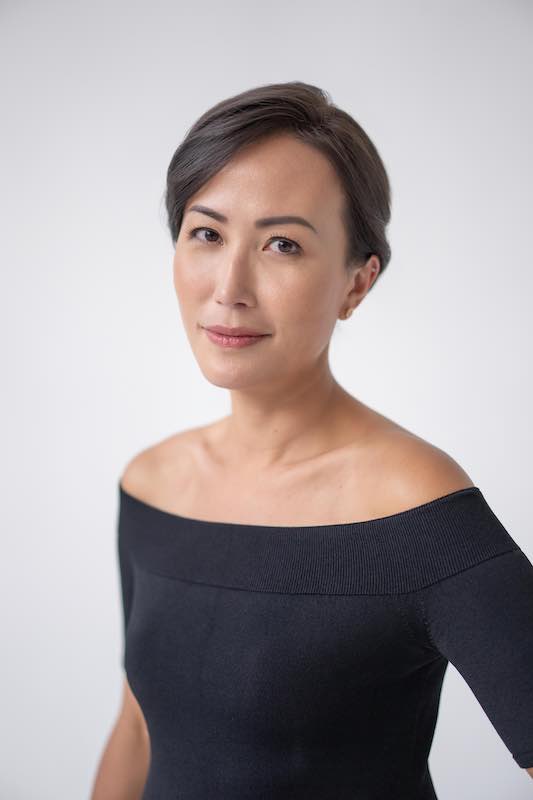
At Angeline Yong Dermatology, dermatologist and hair transplant surgeon Dr Yong specialises in medical and surgical treatments to mitigate such hair woes. One example is the use of Jak inhibitors, also known as Janus Kinase inhibitors. This cutting-edge medication can be “life-changing for patients suffering from recalcitrant and extensive alopecia areata”. It works by helping to modulate the immune response and block inflammatory pathways. This in turn reduces inflammation around the hair follicles and promotes hair regrowth.
Another promising solution is exosome therapy. Exosomes are tiny extracellular vesicles naturally produced by cells in the body. They play an important role in cell-to-cell communication and can be used to stimulate hair growth in those suffering from pattern hair loss or telogen effluvium (temporary hair loss after severe stress).
For other types of hair loss, Dr Yong recommends microneedling on the scalp. This enhances the absorption of topical medications and hair growth serums. The procedure increases blood circulation, triggering the release of hair growth factors, and also stimulates collagen production. All of these contribute to promoting hair growth and preventing further hair loss. Dr Yong can tailor a personalied hair-loss treatment plan for your needs.
Angeline Yong Dermatology
#02-04/05 and #03-02, Gleneagles Medical Centre, Napier Road
6252 0026 | ayd.com.sg
Tried and tested supplements for hair loss
We hear the verdict from two women who’ve been using the Hair Growth+ InCLINIC by Nourkrin supplements for their hair-loss issues.
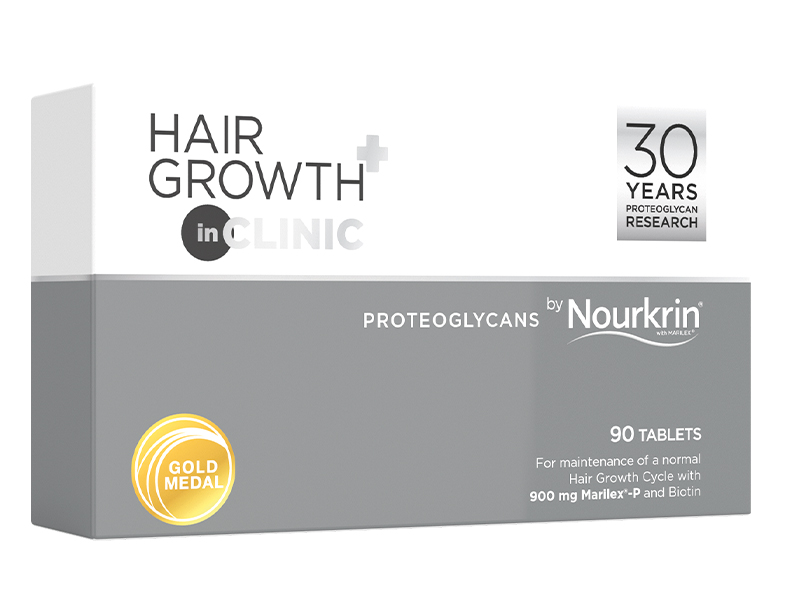
Customer #1
“I’d been experiencing thinning hair for four to six months and using hair loss shampoo, hair tonic and hair massages to help to increase growth when I heard about Nourkrin on Instagram. I’ve now been taking Nourkrin supplements for about six months and I can see hair growth – my baby hairs are coming out. So I would definitely recommend it to others.”
Customer #2
“My hair has always been on the thinner, finer side. However, I started experiencing increased hair loss a few years back when I started styling my hair more often (dyeing and so on). So I researched foods that could promote hair growth and bought a ton of hair loss shampoos, hair growth serums and supplements to try! And I stopped styling my hair as much, too.
I was introduced to Nourkrin by a friend, and I also had another online acquaintance tell me that his wife’s hair growth had been tremendous since taking it. I’ve now been using the product for two months, and it’s nothing short of amazing!
I’ve seen baby hair all over my scalp – something I’ve not experienced with other hair growth products. I would definitely recommend it to anyone, male or female, who is experiencing hair loss.”
This article on hair loss solutions first appeared in the August 2023 edition of Expat Living. You can purchase the latest issue and also subscribe so you never miss a copy!
Need a good hairdresser in Singapore?




